Brothers Osborne seem to live and breathe guitars. When they’re not writing songs and working on records, they’re searching for vintage gear in pawnshops and scouring Craigslist for deals while they tour around the country. Even though many of their songs reference partying, both brothers insist those days are behind them: The way they have the most fun these days is through their music. Older brother John Osborne told Premier Guitar, “I’ve finally hit that spot in my life where I’m married, I have a house, a dog, and responsibility. But when I go out on the road and I’m playing guitar, I might as well be 14 years old all over again. It’s so much fun.”
Growing up in a musical family in Maryland, brothers John and TJ learned to play, sing, and write songs at the kitchen table with their family. They decided to follow in their songwriting parents’ footsteps, so the two brothers moved to Nashville in the mid-2000s. That move paid off when they signed to EMI Nashville. They’ve since had gold and platinum singles, their debut full-length release, 2016’s Pawn Shop, went gold, they’ve been nominated for three Grammys, and they’ve won three Country Music Association awards and two Academy of Country Music awards.
The follow-up, Port Saint Joe, is an album full of hook-laden songs about partying and growing up, and the Brothers’ sound is as equally referential to modern country as it is to radio rock from the ’70s through ’90s. John Osborne’s guitar playing is where the line between classic rock and country often gets blurred. Between his leads, funk-guitar breakdowns, and hard-rock riffs sprinkled throughout their songs, his playing organically bridges genres. This makes a song like “Shoot Me Straight,” Port Saint Joe’s lead single, hard to quantify: It’s a rocking anthem with a huge sing-along chorus that follows many of the melodic and lyrical hallmarks of country songwriting, but also features two extended, high-energy rock guitar solos over the course of six minutes and 24 seconds.
The Brothers recently discussed with Premier Guitar their process behind writing and recording, and explained how they managed to track down their great guitars now that they aren’t pawning them. While we probably could’ve spent all afternoon talking gear, we dedicated most of our time to discussing how John and TJ grew up and what inspires their sound.
How does the songwriting process work for you guys?
John Osborne: Typically, we’ll get in a room together, usually with a third person, which helps two brothers trying to collaborate, and every day is a different animal. Some days we’ll show up with a concept or a hook line, a title, a guitar riff. Sometimes we just sit down and talk until something falls out, and other days we just sit around and chat for a couple hours and don’t write anything. The key is just trying to do what comes naturally and not forcing anything. Sometimes when you’re fleshing out an idea in your head, you don’t want to stop that muse. You just want to keep writing and keep feeling it out, and then if you hit a wall, you bring it in and have someone help you to push through it.
Your new album,
Port Saint Joe, was recorded at your producer’s beach house? That sounds awesome.
John: Yeah, it was really awesome. It wasn’t necessarily us wanting to go to the beach per se. We just wanted to get out of Nashville, get out of our comfort zone, and also get out of our home. When you’re in the studio and you’re tracking all day, you’re also dealing with your daily concerns and responsibilities. The second you leave it’s like, “Alright, I gotta go by the post office,” or “I gotta run by the bank,” or “I gotta take the dog to the vet,” and then you get your head out of that creative zone. Being on the beach allowed us to stay in a creative mindset the whole time and not once over those two weeks did we ever snap out of that creative zone.
You’ve each said that this set of songs reflects who you guys are and your inspirations. I would say a fair number of songs are party songs. Is this a party album?
John: Yes and no. We love to have a good time. We grew up in a family that had an open-door policy and was always throwing a party. We left for Nashville and when we would go back home to Maryland, the first thing we would do was have everyone over and we would party. Being in the company of artists, you learn a lot from hanging out with people. That’s just how we are.
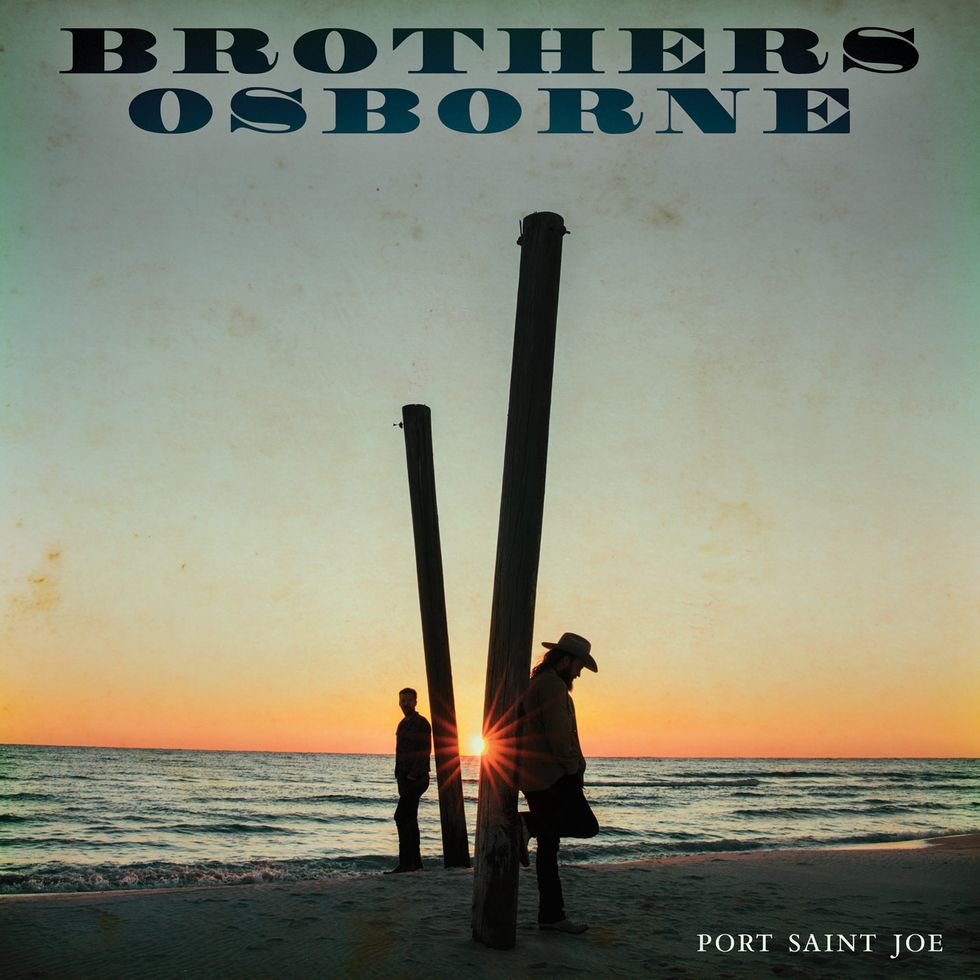
For Port Saint Joe, the follow-up to their critically acclaimed 2016 debut album, Pawn Shop, the Brothers Osborne headed to the Florida beach to make a record in an uninterrupted creative space. For the single, “Shoot Me Straight,” producer Jay Joyce recorded the track live in front of a small group of the duo’s friends.
But there’s more maturity to the record than there was with our first record. If you listen to certain songs, like “Weed, Whiskey and Willie,” it’s not so much a party song. It’s about succumbing to vices when you’re down on your luck. Or if you listen to “While You Still Can,” that’s a reflection on life’s impermanence. So, there’s a good balance, I think, of fun and party and real life and maturity with this record. We have grown a lot as people over the past few years, but we still throw down and party with the best of them.
TJ Osborne: “Weed, Whisky and Willie”—the drinking there is kind of the classic heartbreak kind of style. And then you have “Tequila Again,” which is really a song that we wrote from a tumultuous relationship, but really it’s your relationship with tequila. The only real partier one is “Drank Like Hank.” I don’t think we even realized at the time how many damn drinking songs are on the record. But they’re all from totally different drinking hats.
“Shoot Me Straight” was recorded live in the studio with some friends around, right?
John: That was the song that we showed up most prepared with, and I think Jay Joyce, our producer, thought we were being a little too comfortable with that song. He likes the way we are with songs we’re a little bit unfamiliar with, because we’re playing them in more of a spontaneous way. So that was the first song we tracked and we re-tracked it about halfway through the two-week span, and then, on the last day, we had some friends come from Nashville. We had a crawfish boil at the house, we all had some beers, maybe a few left-handed cigarettes, and we were all just hanging out. Jay was like, “Man, since we got a crowd here, there’s a little bit of an audience, and everyone’s having fun, just perform the song one time down for these guys. Don’t even think about it; play it down.”
We had eight people sitting in the room and we just sat down and played the song through and that was the take. There’s a ruggedness and a looseness to the take that wasn’t there before. The solo was just me having fun and not thinking about it, and there’s a spot where I’m trying to hit a sextuplet sort of thing and I miss a note. Where I typically would want to fix that, Jay was like, “Leave that part there because it shows that it’s a live moment. If you replace it, you’d be taking the live essence out of it.” We went in and overdubbed some harmonies and stuff like that, but what you hear, including the lead vocal—that’s all one take.
“This instrument is a voice; it’s a way for me to sing because I was a shy kid,” says John Osborne. “I didn’t really want to sing, but I wanted to play guitar.” Photo by Ken Settle
So, having some friends there just made it come more alive?
TJ: That’s what we were going for: trying to really get what we do live to translate on this record, and that’s what’s really hard. I think a lot of people struggle with that. We wanted that kind of energy that you would get watching us live, where you could feel like, “This is awesome, but at any second this could fall apart.” That was one of the things that we really tried to maintain there, on top of the fact that I’ve got to sing all these songs. So, trying to make some moments where John can just take off. I get to sing for three minutes, so let’s let him have three minutes where he can get the same, because you know, he does that through his hands.
John: I think a lot of current music is lacking spontaneity, because everything is so programmed and written up in a formula. So, we want to add at least some spontaneity to our show to make each live performance special. That’s what we wanted to capture with “Shoot Me Straight.”
Let’s talk about guitar gear. Your last album was called
Pawn Shop. Is that a thing on tour? Are you guys always searching for used gear?
John: Yeah, yeah, it is! Originally, we were pawning our instruments when we were younger, because we were broke and didn’t have any money. Now we just go into pawnshops to find stuff. Man, it’s not easy to find stuff anymore, though. It’s usually junk or everyone wants too much money for these damn instruments—even pawnshops.
TJ: One of the cool things about us traveling, and John is kinda more in tune with this than I am, but he’s always going through Craigslist or local [listings] and we do pick up a lot of stuff on the road. Here in Nashville, nothing is really under the radar since we’re such a music town, but occasionally if you’re out in wherever, Wichita, you can find some cool little hidden gems out there and bring them back to life.

Guitars
Custom T-style B-bender guitar
Mario Martin T-style
Mario Martin S-style
1968 Fender Telecaster
1968 Gibson SG
1951 Martin D-18
1960s Gibson Country Western
Duesenberg Pomona 6
Amps
1956 Fender Deluxe
1966 Fender Bassman (with Marshall mod)
Port City custom cabinet with 10” and 12” Celestion Golds
Effects
Premier Reverb Tank
Eventide H9
Strymon Sunset Dual Overdrive
Greer Amps Lightspeed Organic Overdrive
Strings and Picks
Assorted D’Addario strings
Dunlop Ultex 1.14 mm picks
Any special finds?
TJ: We’ve found a lot of great stuff. There was one time, we bought off of this one guy, and he ended up having a whole collection of stuff. He was just this mountain guy in East Tennessee and we bought, like, three guitars from him that day.
I bought a banner year Gibson: a 1945 LG-2. John bought a J-45 or J-50. Another guy in our band bought a ’60s Gibson LG-1. Just killer guitars in amazing shape. He was wanting to buy another guitar and so he was selling some guitars and didn’t really care about maximizing. He didn’t really want to wait around for months to get top dollar. He just wanted to get rid of these pieces really quick and buy this one thing that was on sale.
There’s a video of Peter Frampton sitting in with you guys at the CMT Music Awards. Is he somebody who’s been an influence for you, as a guitar player?
John: Yeah. I feel like anyone that plays electric guitar, especially rock electric guitar, is a huge fan of Peter Frampton. He has such a lyrical way of playing, and a very musical way of playing. He’s technically so great, but all of his solos are very singable and melodic—I’ve always loved that about Peter. When you look at Peter Frampton play guitar, he’s just grinning from ear to ear because he’s having the time of his life. And that’s why we all play guitar: because we want to hold onto our youth. Peter has never really left it. You could close your eyes and still see Peter smiling onstage playing. I think that’s one of the things that makes him so great. He’s the nicest guy, man. Peter’s persona onstage as he’s playing—he exudes that even as a person. It’s all one thing.
We got asked to play the CMT Awards, and award shows … they just love collaboration. The first person they mentioned was Peter because he’s got a place in Nashville. I was like, “Say no more. 100 percent, absolutely.” We thought that was so cool, a guitar player of his status wanting to just jam with a band that he’s never met before and doesn’t really know too much about. It just goes to show why Peter is so great: because he loves playing. All the greats are like that.
“My whole thing is, I just love the passion of singing and then physically playing these chords,” says Brothers Osborne frontman TJ Osborne. Photo by Ken Settle
It’s always cool to hear a story about somebody at that level that still just wants to play.
John: You know, someone asked the other day, while we were watching a
Guthrie Trapp video, “When you get that good, does it get boring?” I’m like, “No, you get that good because it’s never boring.” You could look at Guthrie when he’s playing every note on the fretboard at infinite speed, and he loves it! That’s the reason he’s gotten that good, you know, because he loves every second of it. That’s how you get to be great. You have to love it. It’s an addiction.
How did it work out in the house when you guys were kids? Did you decide that John plays lead guitar and TJ plays rhythm and sings?
John: That was never really discussed. I just was obsessed with the guitar. My parents taught me how to play G, C, and D, and I had so much fun. My dad taught me how to play the pentatonic blues scale and I fell in love with guitar. That was the moment when I was like, “Oh my god, there’s so much freedom in this instrument.” I couldn’t possibly get enough of it after that. It felt like flying to me. I fell in love with it, and I didn’t really care to sing that much. TJ just one day opened his mouth and could naturally sing. He had a very natural ability, and that’s how it worked out.
TJ: For me, I played guitar because it was a means to accompany myself as I sung or wrote. I think John really learned guitar from, “I really want to play solos and I want to be really diverse in my guitar playing ability,” and it kinda works out for us now. There’s never a time when it’s like, “I wanna take that solo!” I prefer not to take solos. In fact, I really, really love playing rhythm guitar.
Our uncle, our dad, and our cousin would all hang around the dinner table and play songs and we wanted to join. But they were like, “Look, if you want to come in here and play, we’re not just gonna let some kids come here and bang around and make a mockery of this. If you wanna come in and play, you gotta learn how to play, and then you can join.”

Guitars
1980s/’90s Gibson J-200
1946 Gibson J-45
1945 Gibson LG-2
Mario Martin T-Master
Fender Squier Starfire
Amps & Effects
Kemper Profiler
Strings and Picks
Assorted D’Addario strings
Dunlop Tortex .60 mm picks
John: But our parents both would write songs and come down to Nashville to pursue a career in songwriting. They were unsuccessful in that rite, but they paved the way for my brother and I to do it. So, they’re able to live vicariously through us, as they should be able to, because they’re the reason that we felt we had the confidence to come down here and try it.
John, your guitar playing shows a clear set of country influences: You know the moves, you get the sound, but then you also very obviously have a rock influence, and you guys write music that fits in both of those worlds. I’m just curious about how you see the difference between these influences.
John: It’s interesting that you ask that, because I’m kind of ADD when it comes to guitar. I just want to play everything and I find it all to be so much fun.
The very first thing I wanted to play when I was a kid and I finally picked up the electric guitar and I plugged it into an amp … I wanted to play grunge music. I was obsessed with Soundgarden, Pearl Jam, Nirvana. Those are the bands I fell in love with. I think when I finally heard Stevie Ray Vaughan for the first time, I saw how limitless the guitar was. I had no idea you could do that. Then, of course, Jimi Hendrix followed, and just blew my mind—everything changed. This instrument is a voice. It’s a way for me to sing because I was a shy kid. I didn’t really want to sing, but I wanted to play guitar.
The way that country fits in is, the first time I heard Brent Mason play a solo on some of the old Alan Jackson stuff, it blew my mind. There’s a really cool style of playing there. It’s so technical but it’s so clean and wild. Then I got into Danny Gatton for a while, then bluegrass. I was a huge fan of Bryan Sutton and Tony Rice. Then I realized it’s all kind of the same thing but with a different accent, as cheesy as that sounds. When you start learning all the styles, you hear them come together, and you realize that they all talk to each other. They just have a different accent. Whereas bluegrass would do a b5 pull-off, blues would bend it down, but it’s saying the same thing.
John and TJ Osborne get rowdy with a Gibson Les Paul and a Mario Martin T-Master, respectively, during a live performance in Las Vegas in April 2018. Photo by Katie Kauss
What influences your playing, TJ?
TJ: My whole thing is I just love the passion of singing and then physically playing these chords and I think it just all works as one piece. I love playing guitar and singing at the same time, and the way those two things work and play off each other.
For me, you have, like, Angus Young—obviously, he’s amazing—and then you have Malcolm back there who is just holding down chords. There are endless songs that would feel nothing like they do without him. I recently saw a show where Dave Cobb was playing with [Chris] Stapleton, and he was playing these great acoustic parts and just going for it. A lot of people, when they play acoustic, I feel like they don’t really play it like you want to hear it, and he was just getting after it and it really added a lot to the song. That kind of stuff is inspiring.
YouTube It
This live version of “Shoot Me Straight” from The Late Show with Stephen Colbert is full of great guitar work right from the get-go, with its phaser-heavy opening riff. TJ sings along with the composed lead breaks at 1:58 and 2:39, and at 2:59 John takes off on his solo. Listen to the way he builds his solo with tastefully executed licks and a series of ascending bends at 3:13 to make his way to the top of the neck, pulling out some Hendrix-meets-country guitar moves.




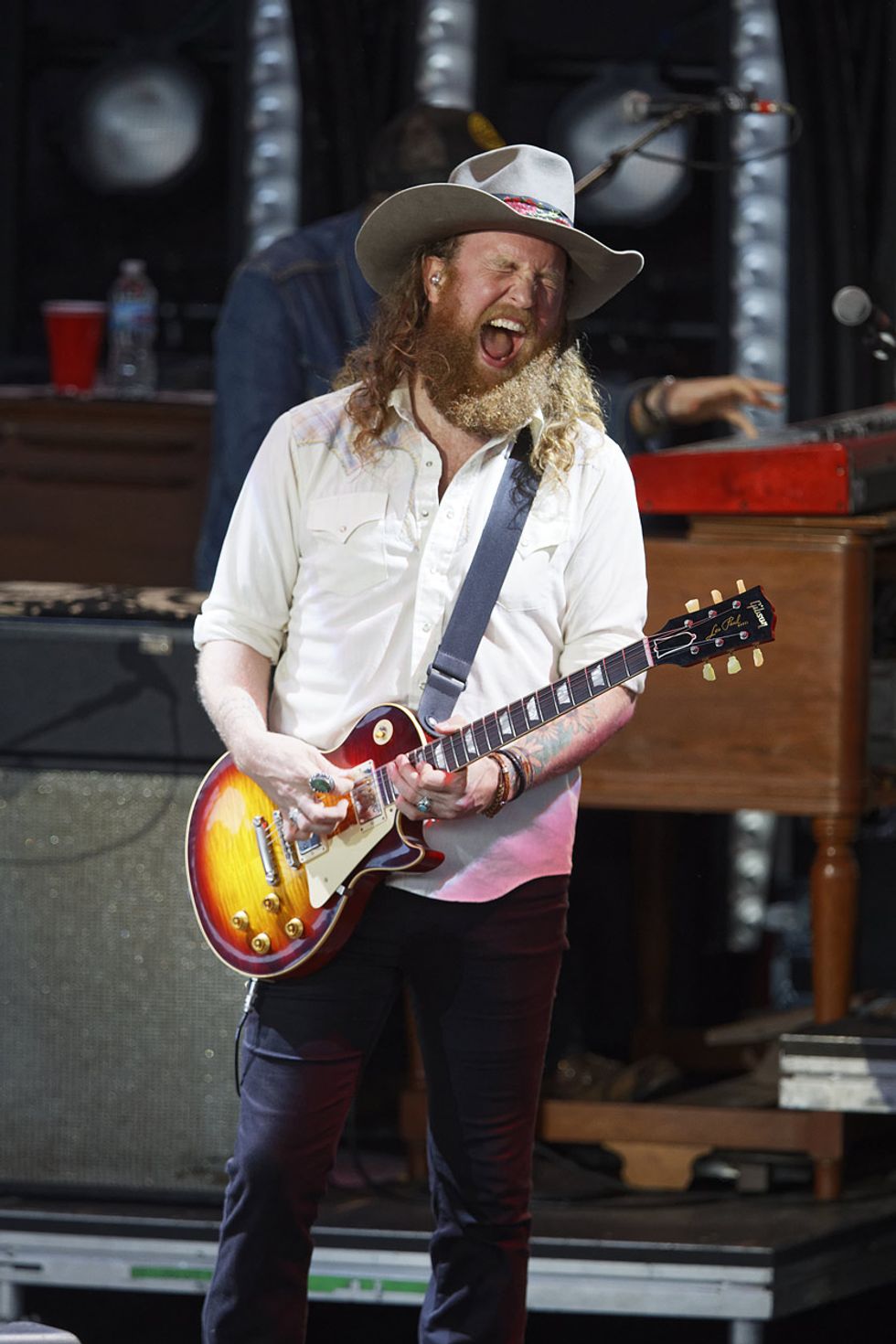
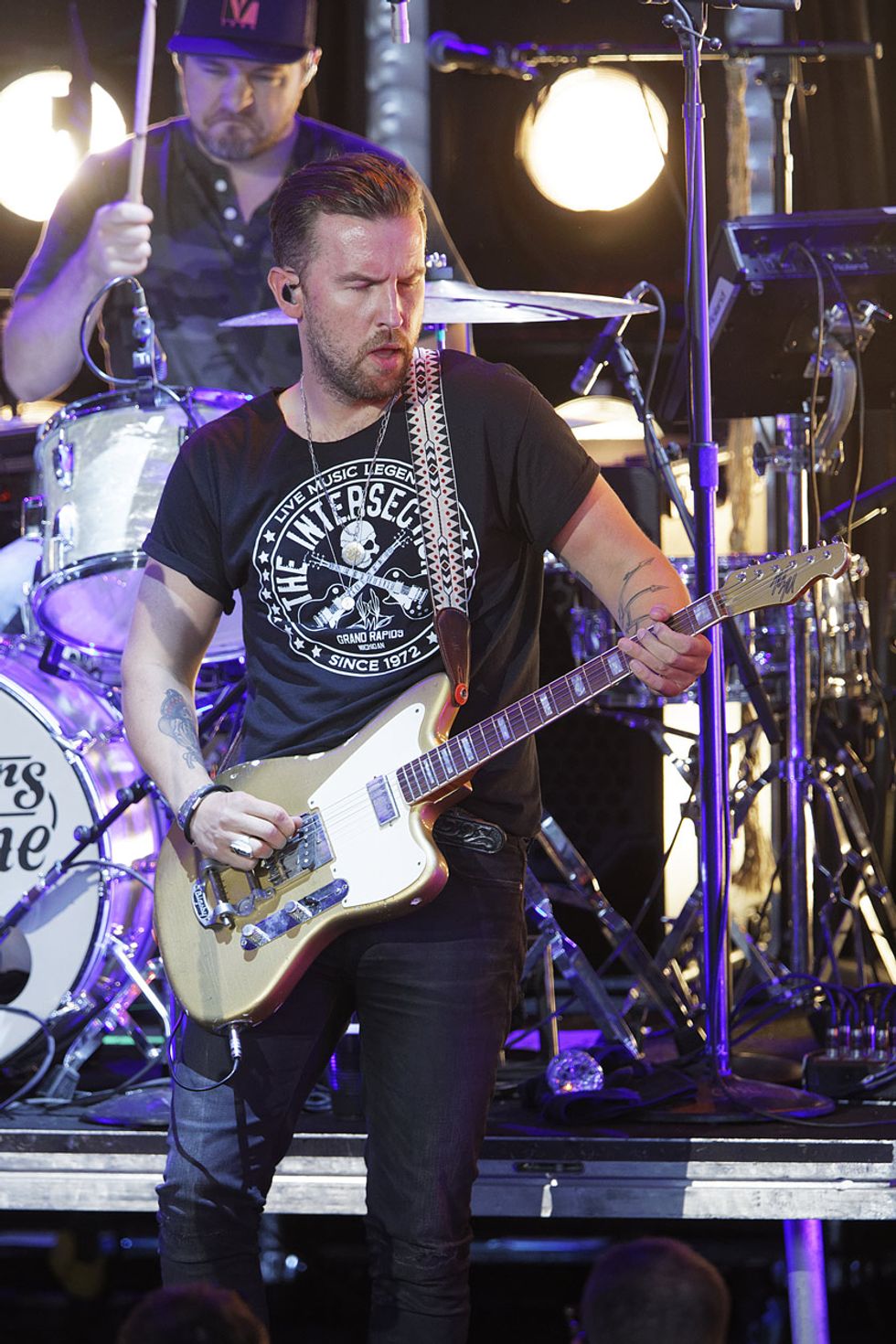
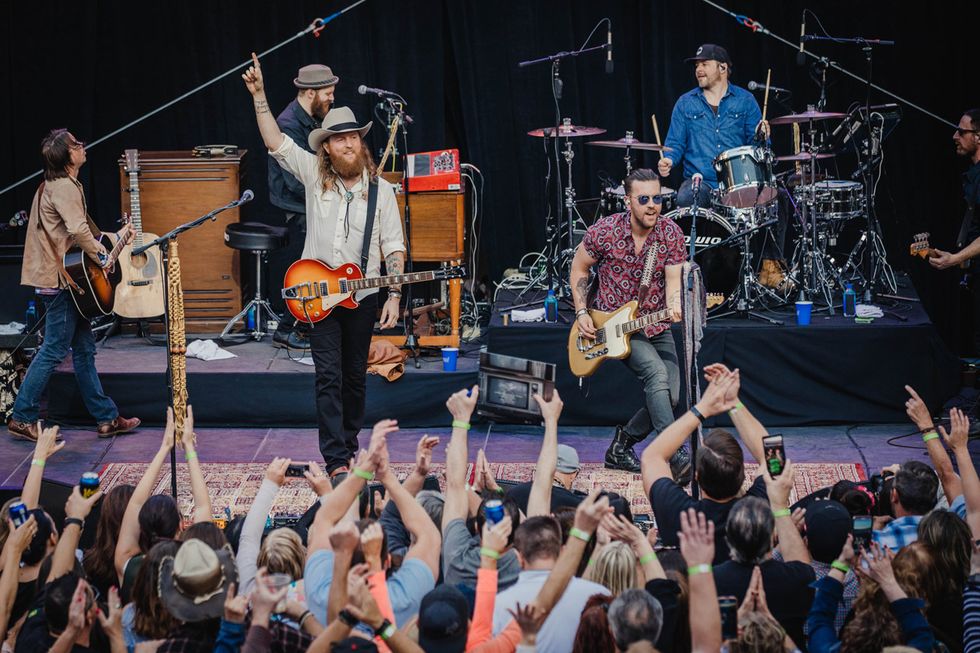










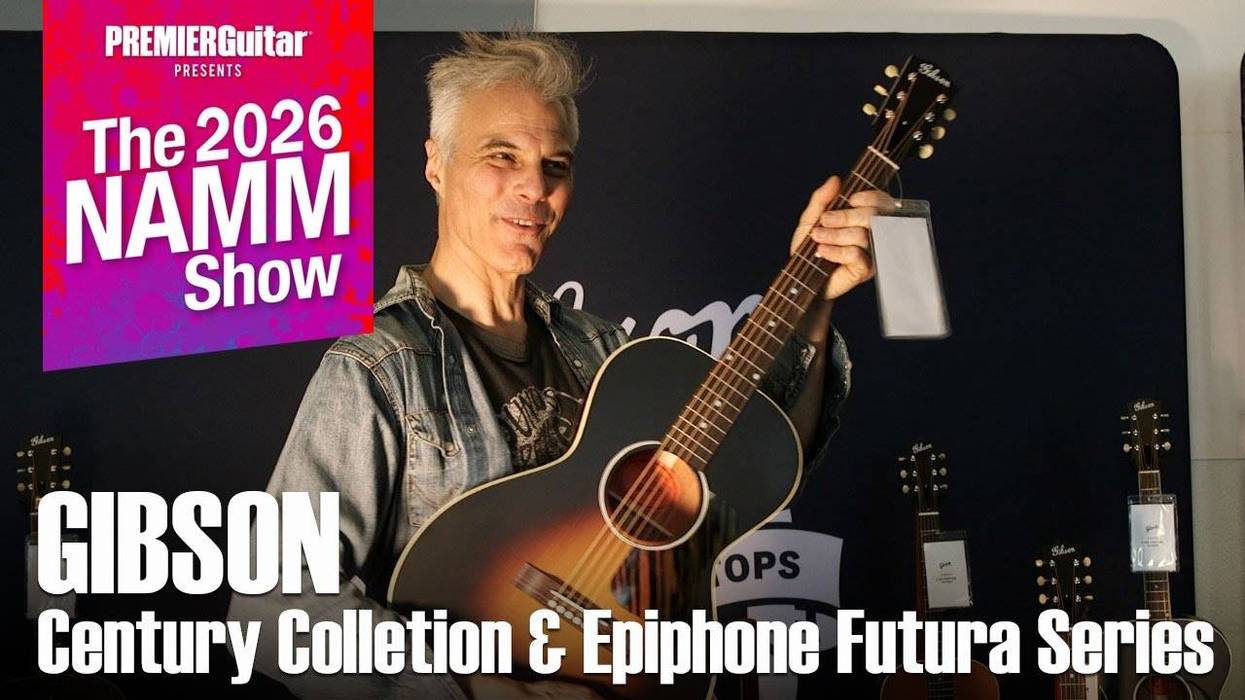

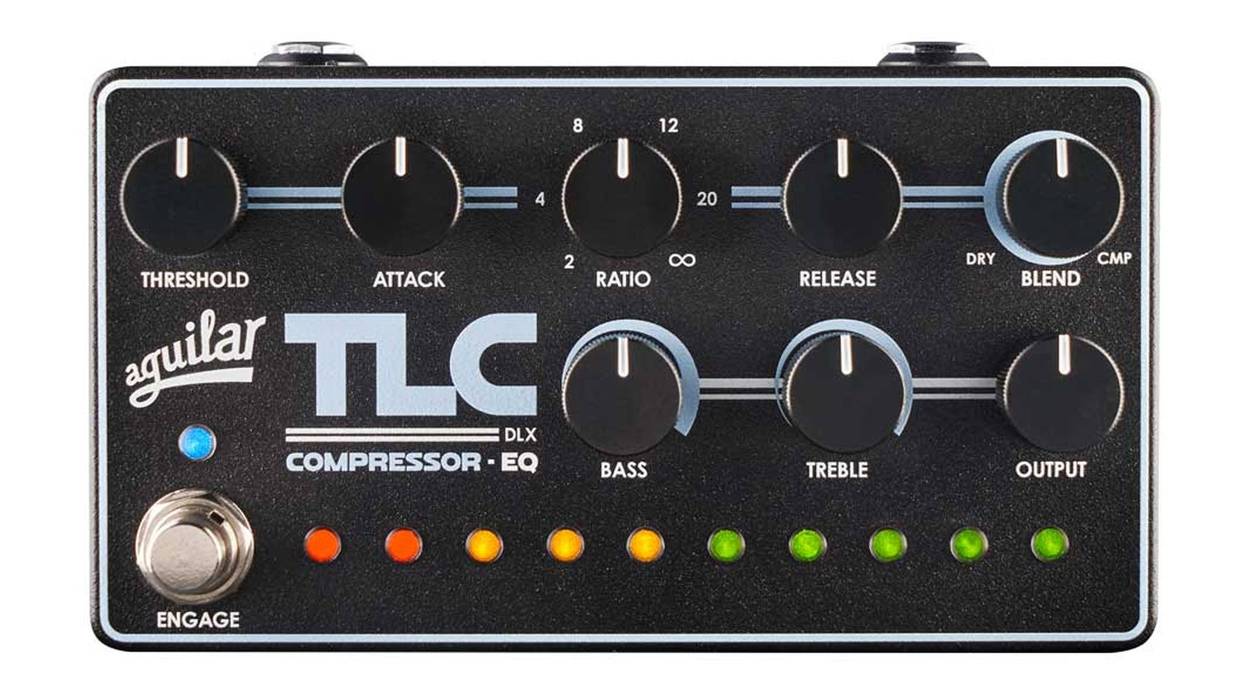

![Rig Rundown: Russian Circles’ Mike Sullivan [2025]](https://www.premierguitar.com/media-library/youtube.jpg?id=62303631&width=1245&height=700&quality=70&coordinates=0%2C0%2C0%2C0)
















![Rig Rundown: AFI [2025]](https://www.premierguitar.com/media-library/youtube.jpg?id=62064741&width=1245&height=700&quality=70&coordinates=0%2C0%2C0%2C0)











